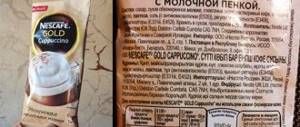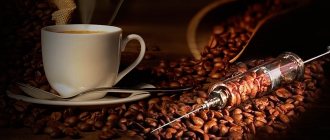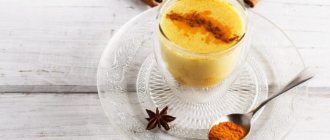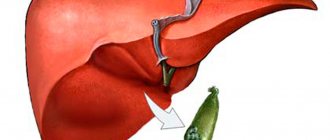After removal of the gallbladder, strict adherence to the diet and changes in diet are usually required. Doctors usually prescribe “diet No. 5,” which excludes the consumption of coffee. But what if you still want coffee? Can I drink it, and if so, how much, what kind and when? Let's look at all the features of drinking coffee after gallbladder removal.
Why do doctors prohibit drinking coffee after surgery?
Caffeine and chlorogenic acids contained in coffee overstimulate the digestive system, stimulate the liver to secrete bile, and since there is no place to store it after surgery, this can be dangerous. With reasonable consumption of natural coffee and following a diet, problems usually do not arise, but doctors want to play it safe and therefore prohibit coffee as a drink altogether.
It is advisable to consult with your doctor before drinking coffee for the first time after surgery. The doctor has a better understanding of the patient's condition.
Coffee after cholecystectomy – can you drink it or not?
If you ask the opinion of doctors, then most often you hear from them the answer “no”.
During the first two weeks after surgery, you really shouldn’t drink coffee and coffee drinks, but then you’ll still want to.. What to do?
Knowing about the craving of Russians for this invigorating drink, nutritionists after the first two weeks after cholecystectomy can make a relaxation if the patient’s condition allows it. However, the amount of coffee consumed when the gallbladder is removed should be very small, and you need to carefully monitor your well-being. If it worsens, you will have to give up coffee.
The reasons why doctors have a negative attitude towards drinking this drink when the gallbladder has been removed are very simple and understandable.
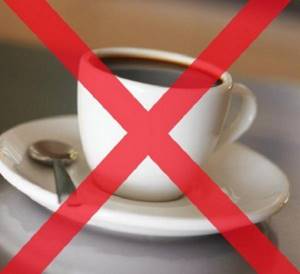
It contains caffeine and chlorogenic acids, and these substances strongly stimulate the digestive system and also have a stimulating effect on liver secretion.
Since in this situation there is no place for bile to accumulate and be stored, it negatively affects the digestive process. If a person takes a reasonable approach to drinking this drink, while following all nutritional recommendations, then, as a rule, no problems arise, however, experts, knowing the indiscipline of their patients, still prohibit coffee completely to be on the safe side.
Read also: How to treat the gallbladder?
In any case, only the attending physician can decide whether coffee is allowed for a patient without a gallbladder or not. It is he, like no one else, who can assess the current state of health of his ward, and on the basis of this, whether or not he can make some concessions.
You can try drinking coffee for the first time no earlier than two weeks after surgery (even later is better). The quantity of the drink should be minimal, as should its strength. It should be diluted with low-fat milk and water.
If after drinking this liquid you experience pain in your stomach, diarrhea and nausea, stop drinking coffee! Although diarrhea may occur without drinking this drink, the substances it contains can significantly increase it. The slightest deviation from normal well-being is a signal that, alas, you should not drink coffee. In addition, not only caffeine, but also other substances that are released from coffee beans as a result of roasting can trigger diarrhea, so even decaffeinated coffee should be tried with no less caution than natural coffee.
When can you try coffee?
About 2 weeks after surgery, you can try drinking some coffee. Signs that should alert you include stomach pain, nausea and diarrhea. Diarrhea may persist for some time regardless of coffee, but caffeine and acids can make it worse, so only drink coffee after gastric bladder removal if you feel well.
Diarrhea is caused not only by caffeine, but also by other substances that are released from the beans during the roasting process. So decaffeinated coffee will not help after gallbladder removal.
Eating without a gallbladder
Diet No. 5, the observance of which is mandatory for all patients who have undergone cholecystectomy, is based on the principle of fractional nutrition. The essence of this principle is the frequent consumption (five or even six times a day) of small portions of food, observing equal (usually three hours) time intervals between meals. It is this kind of nutrition that does not allow bile to stagnate, and it is promptly and effectively removed from the body.
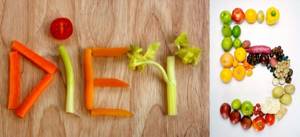
Another requirement of diet No. 5 is the principle of cooking. It is allowed to cook only by steaming, by boiling or baking foods. All food should be warm, since both hot and cold foods have a negative impact on the digestive system, which already works without the gallbladder under increased load.
Read also: Why does stool change after gallbladder removal?
Recommends drinking plenty of fluids, as this helps normalize bile flow. The daily drinking rate according to diet No. 5 should be one and a half to two liters per day. The drink should also be warm.
If we talk about possible foods for consumption, then such a diet involves avoiding fatty, fried, spicy and smoked foods. Meat broths, pickles, pickled foods, mushrooms, legumes, fatty fish, lard, pork, lamb, duck and goose meat, as well as alcoholic and carbonated drinks are prohibited. You should not eat sour fruits and berries, sweets, baked goods, cakes, pastries and ice cream. Avoid the use of sauces (mayonnaise, ketchup, etc.), as well as spices and herbs.
The basis of the diet should be:
- dietary meats (veal, chicken, rabbit, turkey);
- lean fish (pike perch, pike);
- soups with vegetable broth and porridges using buckwheat, rice, oatmeal and semolina;
- raw and boiled vegetables;
- sweet ripe fruits and berries;
- cottage cheese;
- low-fat fermented milk products;
- other healthy dietary products.
Sweets can be replaced with honey or dried fruits. It is recommended to use non-carbonated alkaline mineral water (Essentuki No. 4 and 17, Borjomi, etc.).
So, we have listed the general principles of proper nutrition after cholecystectomy, let’s move on to the main issue – coffee.
What kind of coffee can you drink after gallbladder removal?
In addition to coffee with milk, you may want to try other types. Be careful:
- Black coffee is prohibited. It can cause pain, bloating and diarrhea.
- Instant coffee in any form is prohibited. It contains too many preservatives, flavors, taste and smell enhancers, dyes and similar chemicals that are difficult for the body to perceive.
- You can drink natural coffee, but make sure that grounds do not get into the drink. Use either filters or a coffee machine.
- You can add spices.
- Drink no more than a cup of coffee per day.
Coffee after gallbladder removal
After removal of the gallbladder, strict adherence to the diet and changes in diet are usually required. Doctors usually prescribe “diet No. 5,” which excludes the consumption of coffee. But what if you still want coffee? Can I drink it, and if so, how much, what kind and when? Let's look at all the features of drinking coffee after gallbladder removal.
Can I drink coffee after gallbladder removal?
It is impossible to answer unequivocally whether it is possible or not. In the first two weeks after surgery, coffee is prohibited, but later you can drink it in small quantities if it does not cause discomfort or worsen the condition. In any case, drinking coffee without a gallbladder should be treated very carefully and monitor any changes and reactions of the body.
Why do doctors prohibit drinking coffee after surgery?
Caffeine and chlorogenic acids contained in coffee overstimulate the digestive system, stimulate the liver to secrete bile, and since there is no place to store it after surgery, this can be dangerous. With reasonable consumption of natural coffee and following a diet, problems usually do not arise, but doctors want to play it safe and therefore prohibit coffee as a drink altogether.
It is advisable to consult with your doctor before drinking coffee for the first time after surgery. The doctor has a better understanding of the patient's condition.
When can you try coffee?
About 2 weeks after surgery, you can try drinking some coffee. Signs that should alert you include stomach pain, nausea and diarrhea. Diarrhea may persist for some time regardless of coffee, but caffeine and acids can make it worse, so only drink coffee after gastric bladder removal if you feel well.
Diarrhea is caused not only by caffeine, but also by other substances that are released from the beans during the roasting process. So decaffeinated coffee will not help after gallbladder removal.
How to drink coffee without a gallbladder
Be sure to eat in the morning while sticking to your diet. About an hour after eating, from 9:30 to 11:30 is the best time to drink coffee. Drink a small cup (preferably espresso or ristretto diluted with milk). You can dilute the coffee with water, but be sure to add low-fat milk.
You can start with literally a few sips: after you have gone without coffee for a long time, this will be enough to cheer you up.
What kind of coffee can you drink after gallbladder removal?
In addition to coffee with milk, you may want to try other types. Be careful:
- Black coffee is prohibited. It can cause pain, bloating and diarrhea.
- Instant coffee in any form is prohibited. It contains too many preservatives, flavors, taste and smell enhancers, dyes and similar chemicals that are difficult for the body to perceive.
- You can drink natural coffee, but make sure that grounds do not get into the drink. Use either filters or a coffee machine.
- You can add spices.
- Drink no more than a cup of coffee per day.
Diet rules after gallbladder removal
Olga Kim
Any surgical intervention disrupts the established processes in the body. Naturally, this affects both the digestion process and metabolism. Such a serious operation as removal of the gallbladder also significantly changes the diet.
Diet after gallbladder removal: do's and don'ts
The diet after removal of the gallbladder belongs to the category of therapeutic diets. Therefore, if you are preparing for such an operation, be prepared to seriously reconsider your regime and diet. The diet after removal of the gallbladder is aimed at quickly restoring the function of bile secretion, as well as the associated metabolism in the body.
Nutrition after gallbladder removal
Without a gallbladder, bile constantly flows into the intestines from the liver. Proper nutrition will reduce its toxicity and help protect the intestinal mucosa. For the first month after surgery, eat 5-6 times a day, but not much, and drink up to 1.5 liters of water per day. During this period, you can eat white bread, boiled meat and fish, porridge, jelly, fermented milk products, stewed or steamed vegetables. Take your time and chew your food thoroughly: this will help activate the necessary enzymes and “turn on” the liver. Six months after surgery, you can gradually expand your diet. Eat berries, fruits and vegetables, except onions, garlic, radishes and lemons. You can eat honey and dried fruits. Alcohol, sweets, pickles, fatty and fried foods will have to be limited forever. Fermented milk products with live bifidobacteria, which improve intestinal microflora, will also be beneficial for you. If necessary, the doctor will prescribe choleretic herbs and medications with the necessary enzymes.
Rehabilitation after gallbladder removal
4-6 hours after gallbladder removal, you can eat light food, drink water, get out of bed and walk. The main thing is to do this carefully, as after anesthesia you may feel weak and dizzy. Pain after surgery is minimal and does not require large amounts of analgesics. And many people do not need painkillers at all. You will be discharged in 1-4 days. And in 15-20 days you will be able to return to work. Limit physical activity: do not lift more than 2-3 kg and do not do exercises that involve the abdominal muscles. Please note: proper nutrition after gallbladder removal is one of the most important factors in recovery.

